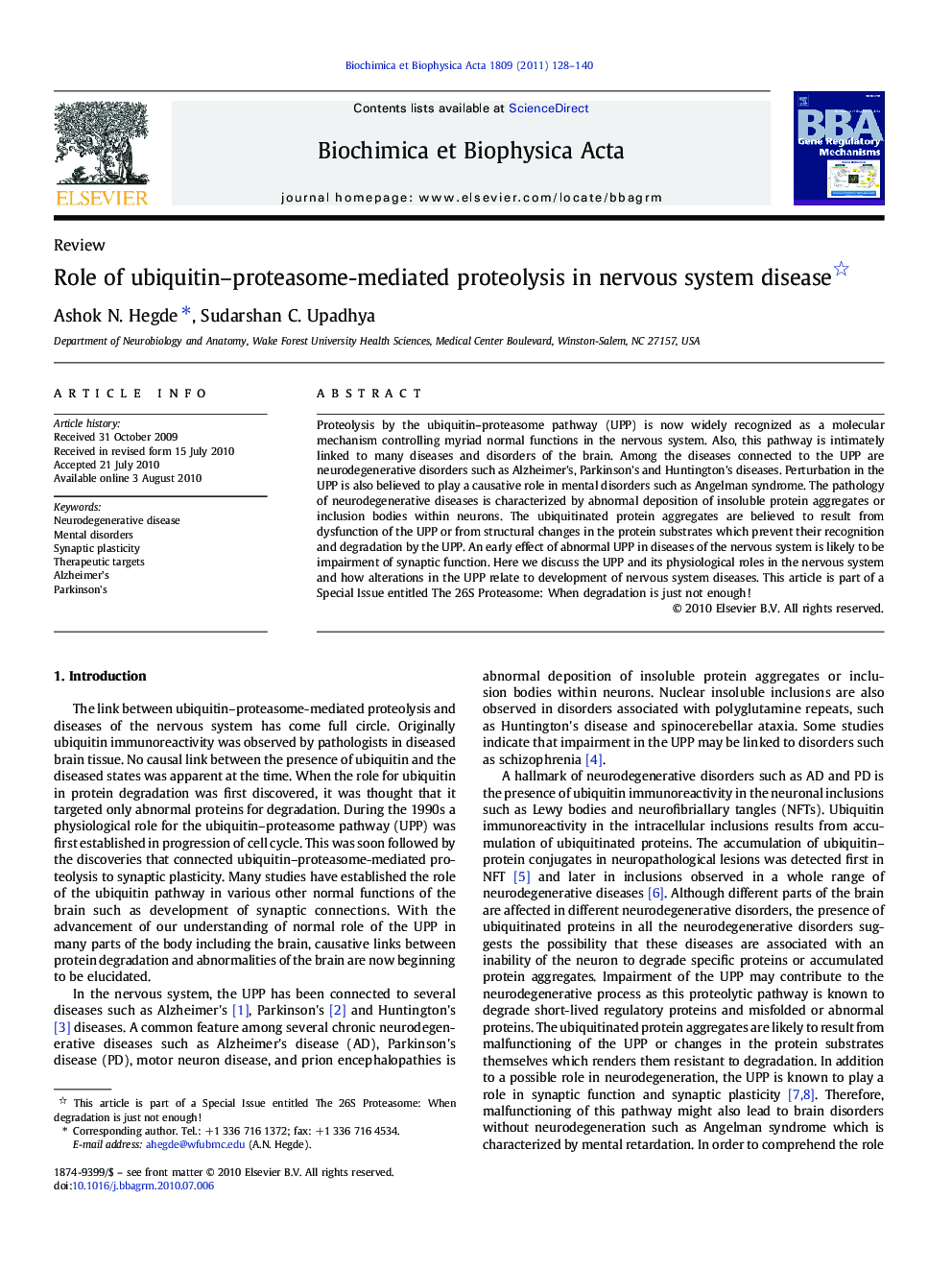| کد مقاله | کد نشریه | سال انتشار | مقاله انگلیسی | نسخه تمام متن |
|---|---|---|---|---|
| 1946688 | 1054264 | 2011 | 13 صفحه PDF | دانلود رایگان |

Proteolysis by the ubiquitin–proteasome pathway (UPP) is now widely recognized as a molecular mechanism controlling myriad normal functions in the nervous system. Also, this pathway is intimately linked to many diseases and disorders of the brain. Among the diseases connected to the UPP are neurodegenerative disorders such as Alzheimer's, Parkinson's and Huntington's diseases. Perturbation in the UPP is also believed to play a causative role in mental disorders such as Angelman syndrome. The pathology of neurodegenerative diseases is characterized by abnormal deposition of insoluble protein aggregates or inclusion bodies within neurons. The ubiquitinated protein aggregates are believed to result from dysfunction of the UPP or from structural changes in the protein substrates which prevent their recognition and degradation by the UPP. An early effect of abnormal UPP in diseases of the nervous system is likely to be impairment of synaptic function. Here we discuss the UPP and its physiological roles in the nervous system and how alterations in the UPP relate to development of nervous system diseases. This article is part of a Special Issue entitled The 26S Proteasome: When degradation is just not enough!
Journal: Biochimica et Biophysica Acta (BBA) - Gene Regulatory Mechanisms - Volume 1809, Issue 2, February 2011, Pages 128–140